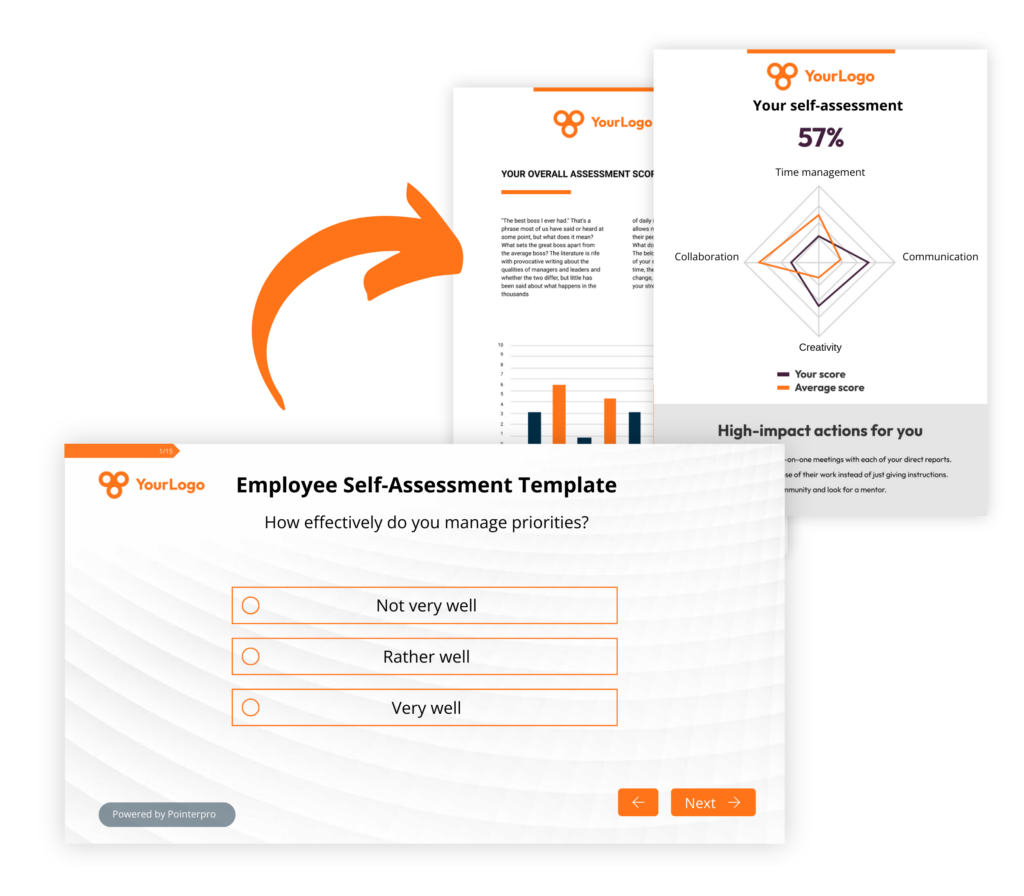Trusted by 1.500+ consultants, coaches, marketers, HR specialists and companies worldwide









These employee self-assessment template questions combine qualitative and quantitative elements, allowing employees to reflect on specific aspects of their performance and behavior.
The questions cover key areas such as overall performance, achievements, challenges, areas for improvement, teamwork, initiative, stress management, contribution to company goals, and professional development. The multiple-choice options provide a structured way for employees to assess themselves. They make it possible for HR to make a quantitative analysis and to identify trends and common areas of strength or improvement across the organization. The inclusion of both open-ended and closed-ended questions encourage comprehensive self-reflection, providing valuable insights for both the employee and the organization.
"We use Pointerpro for all types of surveys and assessments across our global business, and employees love its ease of use and flexible reporting."

Director at Alere
"I give the new report builder 5 stars for its easy of use. Anyone without coding experience can start creating automated personalized reports quickly."

CFO & COO at Egg Science
"You guys have done a great job making this as easy to use as possible and still robust in functionality."

Account Director at Reed Talent Solutions
“It’s a great advantage to have formulas and the possibility for a really thorough analysis. There are hundreds of formulas, but the customer only sees the easy-to-read report. If you’re looking for something like that, it’s really nice to work with Pointerpro.”

Country Manager Netherlands at Better Minds at Work







